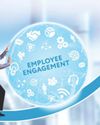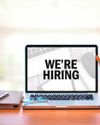As with all other aspects of life, technology is fundamentally transforming the workplace in an unprecedented manner. Emerging technologies such as robotics and AI are dramatically changing the nature of jobs and consequently the skills that organisations are looking for from their people.

In the year 2000, Ray Kurzweil, Futurist and Chief Engineer at Google, predicted that 20,000 years of progress would be crammed into the next hundred. And, true to his prediction, we have witnessed the world changing much faster than ever before. While this change has been catalysed by a number of forces like resource scarcity and climate change, rapid urbanization, shifts in global economic power and demographic changes, the key driver has probably been technological advancement.
As with all other aspects of life, technology is fundamentally transforming the workplace in an unprecedented manner. Emerging technologies such as robotics and AI are dramatically changing the nature of jobs and consequently the skills that organisations are looking for from their people. It is not surprising then, that 92% of global CEOs think technology will change competition in their industry over the next five years, and 52% say that they are already reaping the benefits of humans and machines working together . Then the big question before us is the impact it shall have on the talent and people paradigms. Will technology truly supplement human resources and unleash potential, or will it replace the human mind and put jobs at risk?
Visualising Digital TransformationTo unravel this question, we may need to visualize digital transformation as three overlapping waves:
Wave 1: Assisted intelligence - Here repeatable, standardized and time consuming tasks are automated, allowing humans to concentrate on more strategic tasks. And, this in fact is today's reality.
Wave 2: Augmented intelligence - Here there is a fundamental re-think of business models and the nature of work, enabling humans and machines to collaborate. This wave is emerging in some sectors and organisations today
Denne historien er fra January 2018-utgaven av Human Capital.
Start din 7-dagers gratis prøveperiode på Magzter GOLD for å få tilgang til tusenvis av utvalgte premiumhistorier og 9000+ magasiner og aviser.
Allerede abonnent ? Logg på
Denne historien er fra January 2018-utgaven av Human Capital.
Start din 7-dagers gratis prøveperiode på Magzter GOLD for å få tilgang til tusenvis av utvalgte premiumhistorier og 9000+ magasiner og aviser.
Allerede abonnent? Logg på

Continuous Learning For Growth
Of late, for organizations particularly in the service sector, people have become the strategy. And, if that is the case, the Learning and Development (L&D) department in organizations, and the industry in general, is likely to witness significant growth in 2017 and the years thereafter.

Creating Open Spaces And Minds
As the boundaries of life between work and home continue to blur, employers and employees are sitting up and are noticing the ways and means to offer and avail a worthwhile experience at the workplace.

Striking The Right Balance
In 2017, an employee in the HR Department of a leading global company received an excel sheet attachment in his official mail. While the content seemed harmless, it was in fact a well disguised Ransomware attack which had in fact placed several companies worldwide in the dock. Ransomware attacks targeting HR departments across the globe have since been in vogue since they possess valuable employee data which can be used to commit crimes such as tax frauds and the like.

The Multifaceted Advantages Of AI
AI can speed and automate data collection, make fundamental observations, systemize HR issues, and differentiate customer and employee profiles. But, corrective measures and final decisions can only be approved by people who can understand how to leverage AI tools to acquire accurate information sans the noise and interpret them the right way.

Engagement Surveys: A Means Or An End?
Surveys are not merely a way to check the pulse of the organisation; they should ideally be used as vehicles to improve the organisation culture, people practices and employee experiences which gradually translate into business success.

What Is And What Needs!
The idea of the best fit works only in a perfect universe. In reality, what talent specialists and hiring managers should focus on is getting the close fitment. They should work with an approach that bridges the gap between what is (available) and what needs to be (done).

A Matter Of Strategic Timing!
The term 'work-life balance' has become a popular chant for all working professionals today. A world of different opinions continue to pervade our lives, with one actually affirming that there truly is no direct relationship between the parallel worlds we live in.

Picture Out Of The Frame
A few months ago, Moon Jae-in, the President of South Korea, made an unusual announcement.

Analysis
It is paramount for a pharmaceutical company to meet the business requirement of regulatory compliance.

How Can They Fire Her?
It is a common phenomenon in the corporate landscape to misinterpret the inability to respond to a query by a Manager as a serious lapse which at times leads to termination of his/her services. As a fallout, not only do they risk losing out a person with superior managerial skills, they also dampen the spirit of the juniors in her department, leading to sinking morale and reduced engagement.